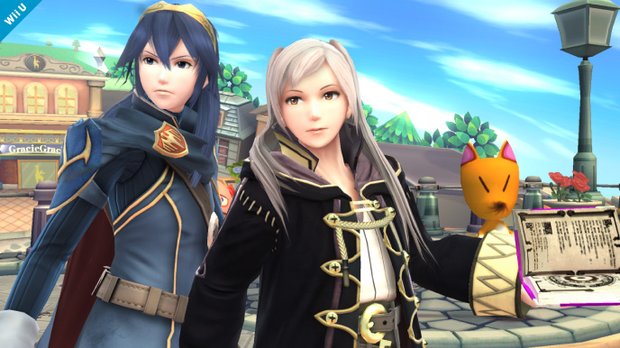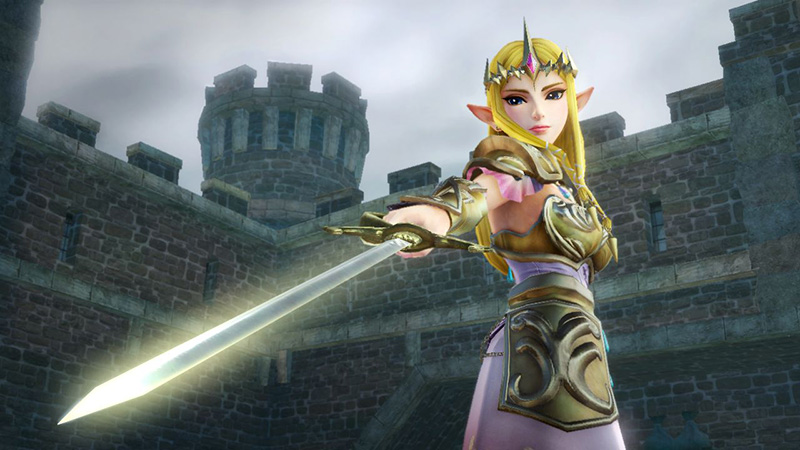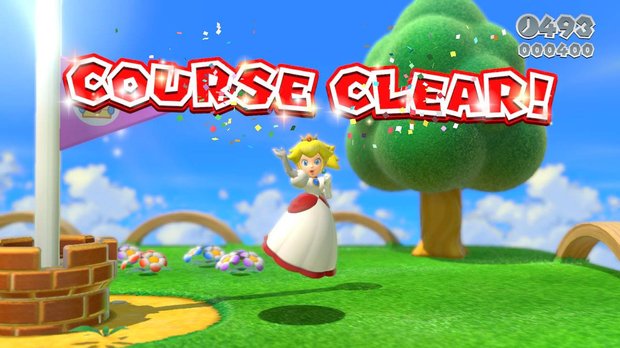Nintendo is moving closer to gender equality than most major publishers
The topic of women in gaming is usually an easy one to discuss, mainly thanks to how diverse the games industry is. Oh, sorry, that last sentence is just one massive typo, in reality the exact opposite is true. Take a look at just about any gaming outlet, and you'll no doubt find stories about gender inequality in games. For instance, Ubisoft avoided including female assassin's in its upcoming game Assassin's Creed Unity because, according to the developer, doing so would've resulted in too much production work. It saddens me to see a lack of options for female characters in any game--why should all saviors of the universe be dudes? But even if Ubisoft struggles with adding female characters to its games, Nintendo has been announcing a strong female roster for many of its newest games.

Just look at the Smash Bros. Wii U/3DS roster. The series began on N64 with few playable women; now there are eight female characters confirmed for the upcoming sequel. Alongside those XX-chromosome brawlers are four others that let players pick the gender of the fighter pre-match. That may not be total equality with the number of male characters in Smash Bros., but it's miles ahead of many other fighting games. The addition of these characters feels like a totally natural progression of the franchise, not some tacked-on agenda.
The inclusion of more female characters works because Nintendo's recent games show a clear effort to add more women in leading roles. As another example, take a look at the upcoming Hyrule Warriors. The Legend of Zelda spinoff stars Link, but every other playable character announced so far is a woman, including Zelda, who for once doesn't fill her typical role as a kidnapping victim. We'll all just have to wait and see how the final game's roster looks as far as women go, but this is a damn good start.

These two upcoming games are hardly outliers for Nintendo. Super Mario 3D World had both Princess Peach and Rosalina as one of five playable characters, and there were more playable women to be found in Pikmin 3, Fire Emblem: Awakening, and Donkey Kong Country. Bayonetta 2, one of very few major games in 2014 to exclusively star a woman, wouldn't even exist without Nintendo publishing it. Was this all a happy accident or some new, feminist agenda for Nintendo executives? Does it matter? Inclusivity is a good thing anyway you look at it.
Nintendo definitely seems to be aiming to be more inclusive than its competition, and based on what I saw at 2014's Game Developers Conference, that seems to be the situation behind the scenes too. Amidst all the male game developers hosting panels, it was incredibly refreshing to hear from Aya Kyogoku, the game director on Animal Crossing: New Leaf panel. She spoke at length about fostering diversity in her development team, and how that led to a more creative atmosphere for creating the very popular Animal Crossing sequel. She's still one of too-few women at her level in Nintendo (and in the industry in general), but she even noted that she thought that trend was changing.
Is Nintendo perfect? Far from it--there's still plenty of room for improvement. For one, there's the very confused messaging about same sex relationships in Tomodachi Life, the continued overuse of the tired damsel in distress trope, and a number of troublingly hypersexualized characters among the inspiring fictional women. For as female-focused as Hyrule Warriors seems to be so far, there's still the fact that the roster includes the scantily clad villainess Cia. And the less said about Zero Suit Samus' high heels, the better. All of those don't do much good for equality, but stepping away from ingrained practices like those takes time.

Of course, I'm not naive enough to think that making Princess Peach playable, or bringing back Dixie Kong, will immediately fix such a deeply entrenched problem as gender inequality. And if what I'm talking about here feels threatening or unnecessary, you might want to rethink things. Games can be a very unwelcoming place for half of the planet's population, and it's going to take a lot of work to change that. Moves like these may just be baby steps in the right direction, but it's positive momentum regardless. In an industry where negative press and a vocal minority of misogynists can make it look like every disc comes stamped with a big "No Girls Allowed!" sticker, it's worth celebrating something favorable when it happens.
Weekly digests, tales from the communities you love, and more
Henry Gilbert is a former GamesRadar+ Editor, having spent seven years at the site helping to navigate our readers through the PS3 and Xbox 360 generation. Henry is now following another passion of his besides video games, working as the producer and podcast cohost of the popular Talking Simpsons and What a Cartoon podcasts.



